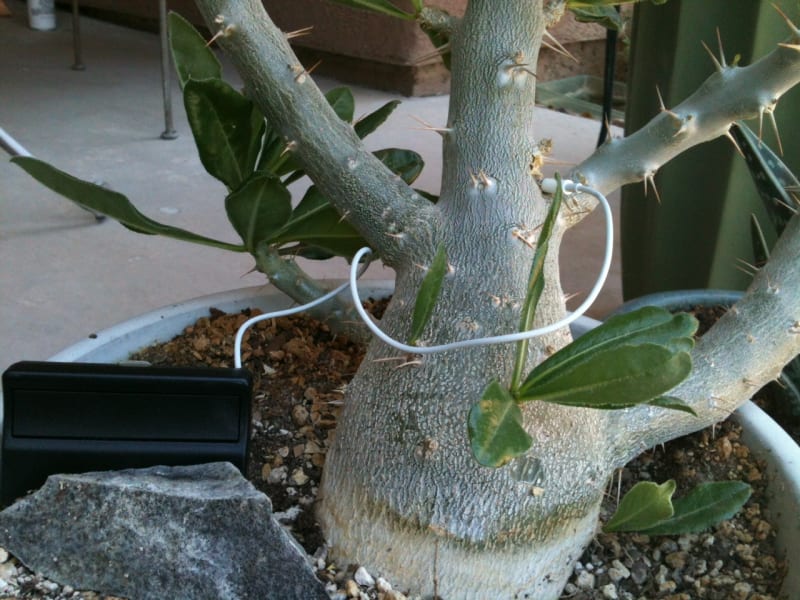Correlating recorded sounds that plants make when treated with a specific stressor (hot, cold, wet , dry, etc.) we can listen in while increasing our understanding of their physiology and resilience. The end product will be a small device to attach to your favorite plants to hear audible sounds that relate to its growth and respiration. You will be able to experiment which plants are more “talkative” and what kinds of things make them “talk.” Using our plant guide you can learn the sound a specific species might make when it is thirsty or too cold.
Starting with the giant Saguaro cactus, as a mature plant it retains several tons of water. We will record, analyze and correlate the acoustic signals emitted internally when we subject the cactus to specific stressors. The goal is to correlate specific sounds a plant makes with a specific environmental stress it is experiencing. This effort will then be applied to different plant species. Instrumentation will then be engineered to a commercial product for plant fans to listen in on the internal well-being of their favorite plants. Other applications of this technology can include listening for insect infestations for agriculture or horticulture crops.
In this project we will use acoustic sensors and advanced data processing techniques to explore the way Saguaros move and circulate their water. These techniques have been used to monitor tiny capillary constrictions inside woody trees during drought conditions, but have not been applied to cacti or a wide variety of plants. The internal acoustic emissions will be transformed into audible emissions. A variety of stressors and activities will be applied to the subject cactus to try to induce changes in the acoustic emissions. These stressors include dryness, cold, heat, UV intensity, over-watering, physical contact, exposure to noise and music, etc. By understanding these sounds we intend to develop a relationship between stress and plant sounds.
Like this entry?
-
About the Entrant
- Name:Lois Wardell
- Type of entry:teamTeam members:Lois Wardell, PhD
Charlotte Rowe, PhD - Software used for this entry:open source and self-developed
- Patent status:none

